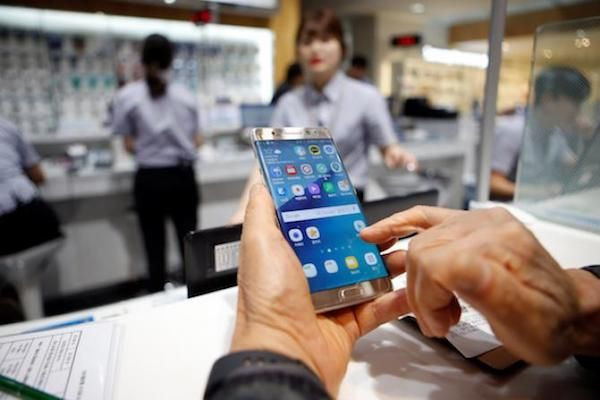Samsung Galaxy Note 7 Battery Failure Explained: Manufacturer Details Separate Defects In Two Device Components

Samsung has revealed its findings on what caused Galaxy Note 7 handsets to explode to the point where the device had to be recalled from the market twice.
Samsung CEO, DJ Koh lead a press conference in South Korea Monday (Sunday evening EST), where he detailed the results of Samsung’s internal investigation on the Galaxy Note 7. Representatives from three independent organizations, UL, Exponent and TUV Rheinland also presented similar findings on the Galaxy Note 7 failures.
Samsung discovered separate defects on both brands of batteries used on the Galaxy Note 7, according to Koh. The device’s original battery (battery A), produced by the Samsung SDI subsidiary had defects to the electrode separators in the upper right corner of the lithium-ion battery. The separators curved unnaturally, which caused the cell to short circuit and ultimately explode. The first battery also had a faulty structure, in which the electrodes curved in areas they should not.
Amperex Technology Limited supplied the second battery (battery B) used on the Galaxy Note 7, which had welding burns on the positive electrodes. This defect pushed the electrodes up causing damage to separators and insulation tape within the battery and allowing positive electrodes and tabs to directly touch negative electrodes. Several batteries were also missing insulation tape, causing further unintended contact between tabs and electrodes.
Samsung conducted tests on 200,000 Galaxy Note 7 handsets and 30,000 additional batteries with the assistance of 700 dedicated staff members. Overall, Samsung insists there was nothing inherently wrong with the device itself and that the defects were relegated strictly to the battery.
Samsung Electronics America CEO Tim Baxter told Recode the Galaxy Note 7 would likely still be on the market if not for the overlooked manufacturing issues on battery B in the rush to address the initial recall.
In response to the entire Galaxy Note 7 ordeal, Samsung has implemented an eight-point safety check system, which will include durability tests, visual inspection, X-ray, charge and discharge tests, total volatile organic compound tests, disassembling tests, accelerated usage tests and delta open circuit tests ensure batteries and handsets are suitable for sale. Samsung has also organized a battery advisory group, of four battery expert professors and consultants to oversee production and quality of batteries for Samsung devices.
Samsung is expected to move forward with the release of its 2017 flagships. The Galaxy S8 smartphone may be announced as early as February. The Galaxy Note 8 smartphone is also expected to release later in the year.

© Copyright IBTimes 2024. All rights reserved.






















